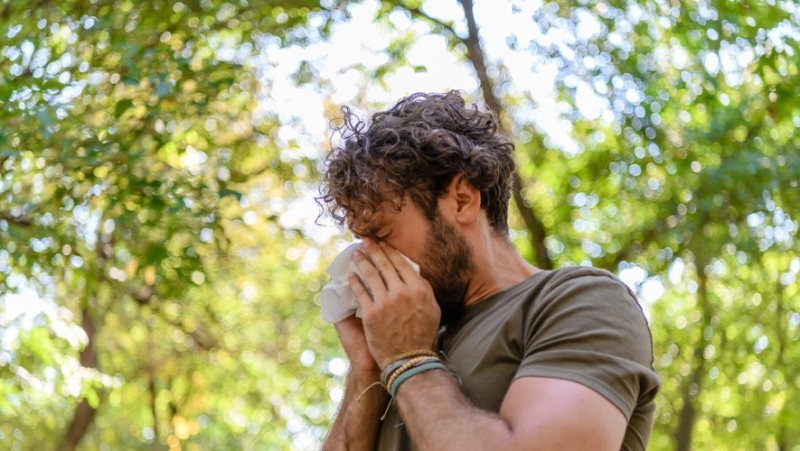Pollen allergies: why more and more of us are concerned ?

Près de 30 % des Français sont allergiques aux pollens DR
Près de 30 % des Français sont allergiques aux pollens, un chiffre qui ne cesse d’augmenter. Le réchauffement climatique et la pollution n’y sont pas pour rien…
Itchy eyes, runny noses and scratchy throats as the sunny days return. With them, pollens are also back. If you were not sensitive to it until now, it is not surprising that like a large number of French people, you are starting to suffer from pollen allergies.
1 in 2 French people affected by 2050
Indeed, these have been increasing in France for several years, and affecting more and more people. According to figures from Anses, nearly 30% of the French population is affected by these allergies, a figure which has almost doubled in 30 years, according to Samuel Monnier, communications manager of the National Network of aerobiological monitoring (RNSA) cited by HuffPost.
Worse still, according to allergist Catherine Quequet, also interviewed by our colleagues, "half of the population will be affected by any type of & rsquo;allergy by 2050".
Blame it on global warming and pollution
In question: global warming firstly plays an important role in the increase in pollen allergies due to its influence on elongation seasons and periods of pollination, but also on their precocity. The quantities of pollen released by trees increase, particularly with higher temperatures.
Added to this factor is that of pollution. Fine particles of nitrogen dioxide and ozone weaken the respiratory tract of humans and "pollens enter more deeply", explains Samuel Monnier. Pollutants attack the pollen grain and deform its walls. The latter therefore break more easily and release allergenic protein.
This phenomenon is amplified by the increase in the concentration of CO2, which plants need. "The more there is, the more the plants will develop and emit pollen which is more allergenic, explains the RNSA expert.
What to do if you have allergies?
If you experience the same symptoms, always at the same time, then do not hesitate to consult a doctor who can offer you treatment for the allergy through desensitization and possibly prescribe antihistamine medications or cortisone derivatives.
The RNSA suggests in particular rinsing your face and hair in the evening, ventilating your interior for at least 10 minutes a day, preferably before sunrise and after sunset, d& rsquo;avoid outdoor activities that result in overexposure to pollen, such as running or tending the garden, and keep your car windows closed while driving.
Voici les bons gestes à suivre pour se protéger des pollens et limiter votre exposition : consultez régulièrement la carte de vigilance des pollens sur notre site internet, rincez vos cheveux le soir, aérez les logements avant le lever et après le coucher du soleil si possible… pic.twitter.com/f4c5lNDrzc
— Réseau National de Surveillance Aérobiologique (@rnsa_pollen) February 15, 2024
It is also recommended to regularly consult the pollen vigilance map on the network website.




